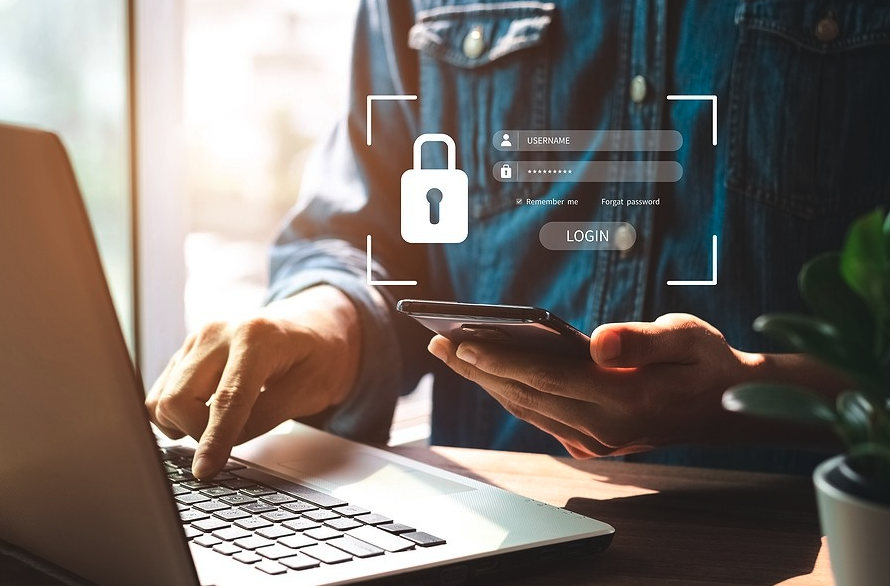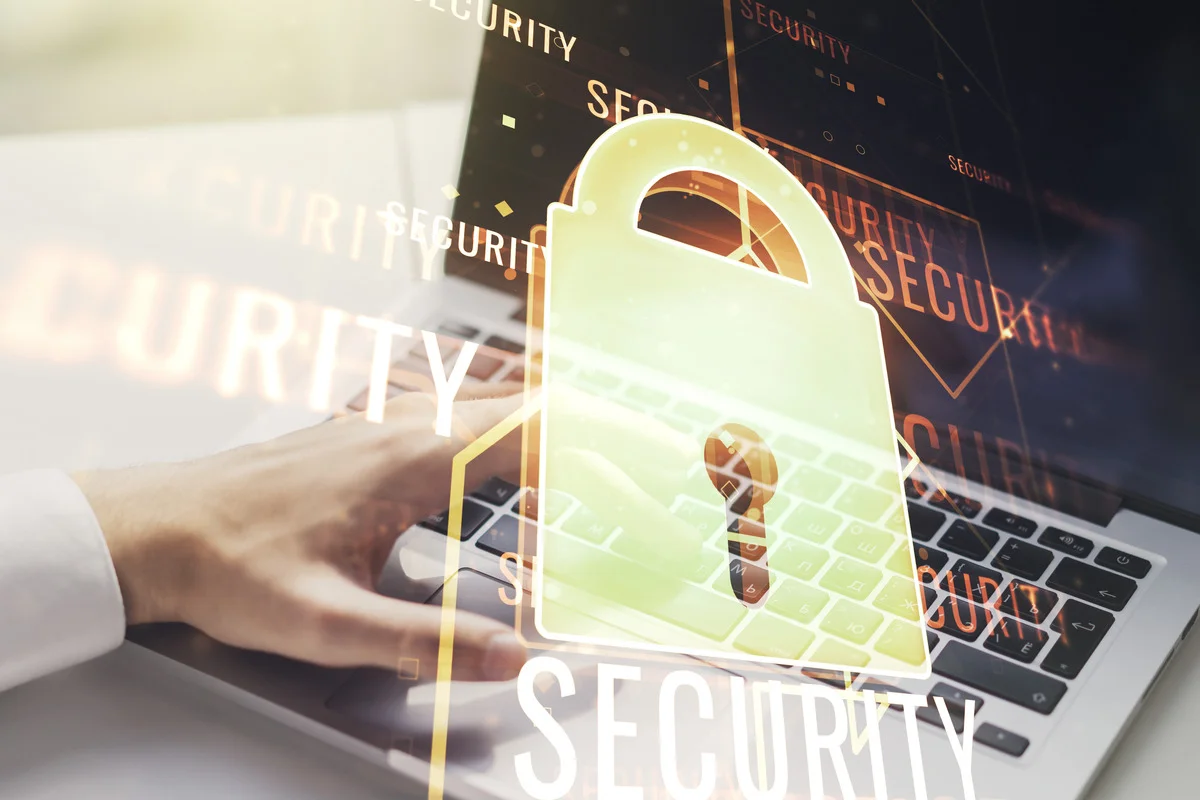As companies increasingly rely on technology to run their operations, exploring cyber security tips for small businesses is a must.
This reliance on technology exposes small businesses to various cyber threats, making robust cybersecurity practices essential.
Common small business cyber security threats like malware, phishing, and data breaches with severe financial and reputational consequences can attack your business anytime.
A 2022 digital.com survey found that 51% of small businesses have no cybersecurity measures in place, while 36% are unconcerned about potential cyberattacks.
This negligence is alarming, especially considering that companies hold sensitive customer data that can be exploited in these attacks.
Small businesses need to prioritize cyber security, not only to protect their own data and operations but also to protect their customers’ information.
This need is underscored by small businesses being frequent targets for cybercriminals.
Verizon’s 2023 Data Breach Investigations Report reveals 699 incidents in small and medium-sized businesses and 381 with confirmed data exposure.
Given the increasing reliance on technology and the evolving nature of cyber threats, small businesses must remain vigilant and adopt a comprehensive cybersecurity strategy.
So, let’s talk about some key tips to meet today’s cyber security challenges based on the US Federal Communications Commission’s cybersecurity considerations.
Conduct Regular Cybersecurity Training
Employees are often the weakest link in an organization’s cyber security infrastructure. Cybercriminals often exploit human vulnerabilities to gain access to sensitive data or systems.
Cyber security awareness training empowers employees to recognize and respond to threats such as phishing emails or phone scams.
Well-informed and vigilant employees can actively contribute to the organization’s cyber security efforts.
Their ability to follow cybersecurity guide protocols and report suspicious activity significantly impacts your business.
However, this employee training program is a long and challenging process.
You must consider several key components of an effective cyber security awareness training program.
For instance, covering key topics relevant to employees’ roles, encouraging ongoing learning, and staying current with the latest cybersecurity practices.
Implement Multi-Factor Authentication (MFA)
Multi-factor authentication (MFA) is a clichéd but critical cyber security tip for small businesses, as it adds an extra layer of defense against cyber threats.
MFA is significant in an era of rampant data breaches and unauthorized access.
Let’s be realistic; passwords alone are often the weakest link in security systems. They can be easily compromised, granting unauthorized access to critical systems and sensitive data.
With MFA, the reliance on passwords is reduced, and the risks associated with weak or stolen credentials are mitigated.
In recent years, credential stuffing attacks have increased, where stolen credentials from data breaches are used to gain unauthorized access.
MFA strengthens defenses against such attacks. Even if passwords are compromised, the additional authentication factor acts as a barrier, preventing unauthorized access and ensuring the security of systems and client data.
For small businesses, especially in remote work and the increasing use of mobile devices, securing access to systems from various locations and devices is paramount.
Keep Software and Systems Updated
Outdated software can have loopholes in its code, making it susceptible to attacks like drive-by downloads and exploitation of known vulnerabilities.
For instance, the WannaCry ransomware attack 2017 was made possible because infected systems had not updated their software despite warnings about vulnerabilities.
Updating software is not just about enhancing security; it also improves overall functionality and user satisfaction.
Newer software versions are more user-friendly and compatible with the latest hardware, ensuring optimal performance and extended device life.
For businesses, updated software translates to better security, reduced risk of cyberattacks, and protection of sensitive information.
Neglecting software updates can result in financial losses, damaged reputation, and legal complications if customer information is breached during an attack.
Use Strong, Unique Passwords
A strong and unique password is a fundamental cyber security practice, especially for small businesses.
According to the Bitwarden 2023 Password Decisions Survey, the need for robust password practices is more critical than ever.
The survey reveals that while awareness about password security is increasing, many users still need to follow best practices for creating and managing passwords.
Complex passwords, including upper and lower case letters, numbers, and symbols, significantly enhance security.
However, the challenge lies in remembering these complex combinations. This is where password management tools come into play.
These tools securely store passwords and help generate unique passwords for each account.
By using a password manager, businesses can ensure that their accounts are protected with strong passwords without the burden of memorization.
Secure Wi-Fi Networks
Securing Wi-Fi networks is vital for small businesses to protect sensitive data and prevent unauthorized access.
Small businesses should prioritize upgrading their Wi-Fi networks to support WPA3 to ensure robust security.
Strong encryption, specifically WPA3 (Wi-Fi Protected Access 3), is highly recommended for Wi-Fi networks.
WPA3 offers significant security enhancements over its predecessor, WPA2, by providing more robust encryption methods and enhanced protection against specific attacks.
However, it’s important to note that WPA3, while significantly more secure than WPA2, is not immune to all vulnerabilities.
It’s also essential to be aware of the risks associated with default or weak router passwords and to change them to strong, unique ones.
Nevertheless, adopting WPA3 is critical in enhancing Wi-Fi security, especially as the number of devices connected to the internet continues to grow.
Regularly Backup Important Data
The significance of periodically backing up important data for small businesses is underscored by the substantial growth in the data backup and recovery market.
According to the Data Backup And Recovery Global Market Report 2023, the market grew from $12.18 billion in 2022 to $14.15 billion in 2023, with a compound annual growth rate (CAGR) of 16.2%.
This growth reflects the increasing awareness among businesses of the need to protect their data against loss or damage.
Automated backup solutions are becoming increasingly popular as they offer a reliable and efficient way to ensure regular backups.
Then secure offsite storage is also a crucial aspect of a sound backup strategy.
By storing backup data in a location separate from the central business premises, businesses can protect their data against physical threats such as theft, fire, flooding, and cyber threats like ransomware.
The adoption of cloud data backup is also driving market growth, as it provides the benefits of accessibility, affordability, and ease of recovery.
Cloud backup allows data to be stored off-site and accessible from anywhere, ensuring that it remains safe and easily recoverable in emergencies.
Establish an Incident Response Plan
The incident response plan is a documented strategy that outlines clear steps to take during a cyber security incident.
This plan is essential because it provides a roadmap for identifying, containing, and resolving security breaches effectively and quickly.
Its ability to minimize damage, protect sensitive information, and ensure business continuity is important.
Often perceived as easy targets for cyber-attacks, small businesses must recognize the importance of being prepared for potential security incidents.
A well-structured incident response plan should cover the phases of preparedness, identification, containment, remediation, recovery, and lessons learned.
Monitor and Audit User Access
Regular reviews of user access permissions help maintain a secure IT environment.
Implementing the principle of least privilege is vital in this process, as it ensures that users only have access to the necessary functions required for their roles.
A common issue in many organizations is the accumulation of excess permissions by employees, significantly as they change departments or take on new responsibilities.
Regular user access reviews are recommended to be conducted every three months, ensuring that access to critical resources is audited more frequently than average assets.
This practice is not only essential for security but also for compliance with various IT laws and regulations.
For example, ISO 27001, GDPR, NIST, PCI DSS, HIPAA, and SOX all require regular user access reviews as part of their compliance frameworks.
Involving data owners and stakeholders in the user access review process is crucial, as they are familiar with the users and resources being audited.
Additionally, implementing role-based access control (RBAC) can simplify the process by automatically updating user permissions based on their current role in the organization.

Secure Mobile Devices
Securing mobile devices is increasingly crucial for small businesses due to the growing risks associated with these devices and their potential access to business data.
The total number of unique mobile malware samples increased by 51% between 2021 and 2022, with more than 920,000 samples detected, according to Zimperium’s 2023 Global Mobile Threat Report.
The Malwarebytes 2023 State of Mobile Cyber security survey highlights critical insights: nearly half of organizations experienced a cybersecurity incident starting from mobile devices, and almost 30% don’t include mobile devices in their endpoint protection.
Despite this, a surprising 77% feel confident in their mobile device security. This data underscores the risks linked to mobile devices in accessing business data.
Mobile devices are not just communication tools but gateways to sensitive information. The blend of personal and professional use on these devices creates a vulnerability that cybercriminals can exploit.
Hence, implementing Mobile Device Management (MDM) solutions isn’t just a recommendation; it’s a necessity.
MDM offers centralized control and security for mobile devices, ensuring that business data remains secure even in this era of constant digital threats.
Stay Informed About Emerging Threats
The rapidly evolving landscape of cyber security means new threats are constantly emerging.
But how do you stay updated? Where do you find reliable information? Consider subscribing to cybersecurity news feeds and bulletins from trusted sources.
Websites such as US-CERT (United States Computer Emergency Readiness Team), Cyber.gov.au (managed by the Australian Cyber Security Centre), and SecurityBrief Australia offer current information on the latest threats and vulnerabilities.
Why is this important? Knowledge is power. You can adapt your cyber security strategies to counter new threats by staying informed.
Are you aware of the latest ransomware trends? Do you know about the recent phishing techniques targeting small businesses?
Regularly checking these resources ensures you’re not caught off guard. Remember, cybersecurity is not a set-it-and-forget-it affair.
Take a few minutes daily to check for updates and educate yourself about the latest threats. It’s an investment in your business’s safety and resilience.
How Nexalab Helps Cyber Security for Small Business?
At Nexalab, we blend web and app development skills with a strong focus on cyber security, offering solutions that protect your digital assets.
Think about the impact on your business when its technology foundation is functional and secure.
Our expertise spans data visualization to SharePoint programming, aiming to enhance your business’s digital framework.
Can you imagine the growth your business could achieve with robust cybersecurity measures in place? Discover how Nexalab’s services can be a key factor in your business’s success by visiting our website.
Conclusion
The tips we’ve discussed are theoretical advice and practical steps that can significantly enhance cyber security.
You can build a strong defense against cyber threats and ensure the safety and integrity of your business operations by integrating these tips into your business strategy.
Remember, cybersecurity is not a one-time task but an ongoing journey that requires commitment and adaptability.




